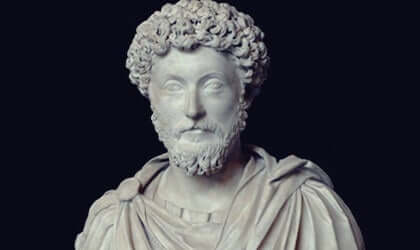Discover the biography of Marcus Aurélio, known as the last of the “five good emperors”. Historians often define him as a faithful ruler of the Roman Empire, but above all as a great thinker who also suffered the weight of the throne. the desire was to be a philosopher; however, his appointment as emperor partly limited his intellectual goals.
Marco Aurélio Antonino Augustus, nicknamed The Wise or The Philosopher, can be criticized for several things in his career; it is unclear, for example, why he chose as his successor someone with a dubious psychological balance like his son Comodo. support their extermination with the Marcomans and Sermatas.
- However.
- To this day.
- His figure is still admired and respected for different reasons.
- The first.
- Being an emperor who always tried to be fair.
- Was also someone who practiced introspection and who.
- Unlike many of his predecessors.
- Did not get carried away.
- Get away with excess.
- Hedonism or glory.
Marcus Aurélio was Caesar’s philosopher and became the forerunner of theories and books of self-help, thanks to invaluable works such as Meditations; in fact, personalities from the history of psychology, such as Albert Ellis, have nurtured many of his ideas of this stoic. focus, those roots from which to learn to control thought to bring balance to life.
“When you wake up in the morning, think about the privilege of living: breathing, thinking, appreciating, loving. ” Marco Aurelio?
The biography of Marcus Aurélio began on the day of his birth in Rome on 26 April 121 AD. He was the son of politician Marco Annio Vero and Domicia Lucila, as a child he has been interested in Greek and Latin rhetoric as well as philosophy. It was a natural inclination, an interest encouraged by his mother, that instilled in him the importance of living an austere life, of being humble in everything.
However, there was something undeniable, something that could never be aligned with the idea of leading a simple existence, his paternal great-aunt was Vibia Sabina, wife of Emperor Hadrian, in this way he has always received the best education, with Herod. ‘Tico and Marco Cornelio Fronto as teachers, the latter being his friend and spiritual advisor. In fact, in the year 133, Marco Aurélio had already been seduced by Stoicism and wore a philosopher’s cape.
In 136, Hadrian appointed Lucius Vero as his successor. However, the emperor was always amazed at the honesty and profound wisdom of Marcus Aurélio, so much so that it was common to seek his counsel and gradually turn him into a right hand, a wise, wise and supportive figure.
He was consul three times and married Emperor Antonine’s daughter, Faustina. Later, would you receive the? Tribunicia potestas? And the “imperium”, the greatest formal powers of the Roman Empire. Thus, at the age of 40, Marcus Aurélio finally ascended to the throne with Lucius Vero. However, with Lucius’ death, he eventually becomes emperor.
With the appointment of Marcus Aurélio as emperor, a convulsive period began in the Empire: the barbaric attacks struck the shores of Rome. The constant uprisings, epidemics and conflicts have also called into question the natural temperament of the regent, known to all for his usual serenity and moral strength.
We know, for example, that he had no military experience and hated blood, so much so that he ordered gladiators to leave the circuses to serve in the army, he also worried about improving the condition of slaves and getting rid of all kinds. to alleviate the economic crisis in the empire.
Thus, in relation to Christians, he took the same position as Trajan: he did not persecuted them. He did not share with his religious practices, but he never punished them. It has also had some success; he managed to cope with the pressure of the barbarians, controlled the Germans and conquered part of Mesopotamia in 161.
When he came to peace in 175, he accepted the entry of groups of barbarians into the empire, however, it ended in 177, during a campaign in which the plague ended his life, with his son Cumodo taking over as emperor. ending what would be the reign of the last good emperor (Nerva, Trajan, Hadrian, Antonino Pio and Marcus Aurélio himself).
In the biography of Marcus Aurélio we see that he is considered the last great stoic of antiquity. Through his letters and writings collected in a book entitled Meditations, we discovered the intellectual depth of the philosopher emperor.
As we have seen, the basis of irrational thoughts is in the work of the last good emperor, Marcus Arélio.
In Meditations, Marcus Aurélio reminds us that people are wise and virtuous by nature, however, to maintain this inner balance, this tranquility, we must erase from our minds the memories of the past and the expectations of the future.
Explain this point with the help of a logical principle: we must not worry about a future that does not yet exist, so it is better to live in harmony with the present, when the future comes, we must face it with courage, judgment and wisdom.
For Marcus Aurélio, a well-lived life must be based on a principle of absolute simplicity, there is no need to worry about what does not yet exist, it is better to get rid of what is not useful than the superfluous. Avoid pleasures that do not nourish the mind, we should not value criticism or silly words, and more importantly: there is no better refuge than the interior itself.
Even if the world is at war, what should never be lost is the peace of the heart, the harmony of being, with this quality there will be no difficulties or setbacks that we cannot face, as we have seen, the thought of Marcus Aurélio is still precious gifts of wisdom and reflection.

